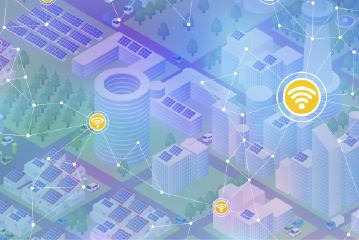 All the hype, the Internet of Things (IoT) are very real and will impact how we work, live and play. In working with customers to develop connected businesses, we’ve found out a few myths about IoT which reshaped how we look at the IoT.
All the hype, the Internet of Things (IoT) are very real and will impact how we work, live and play. In working with customers to develop connected businesses, we’ve found out a few myths about IoT which reshaped how we look at the IoT.
It is a connected world. When talking about IoT, one of the first questions I ask people is whether or not they believe we currently live in a connected world. Most people answer, “Of course it is – I’m connected through my phone, tablet, laptop. I can’t escape if I try.” But I would argue the opposite is true. It’s really not a connected world – at least not yet. While today the average household has five Internet-connected devices, a number that is expected to skyrocket to over 500, according to Gartner – chances are those devices don’t really talk to each other. The true vision of IoT is when literally everything is connected – when your lightening system can talk to your security system which can talk to your garage door opener, which you control with one singular app. And, of course, the promise of IoT extends way beyond connected smart homes to healthcare, manufacturing and everything in between.
The Internet of things is all about the ‘things’. The true innovation of IoT comes not from simply connecting products, but rather from what we do with the data the ‘things’ create. The companies that really come out on top will leverage this data, developing strategies around what this new connectivity allows them to do, from enhancing customer experiences to optimising business processes and product development.
Why is this so important? Believe it or not, most companies have no idea who their customers are. IoT will fundamentally change this scenario by providing the manufacturer with the ability to connect directly to the person who uses the product to provide a personalised customer experience, support and service offerings. IoT will give products a voice and will help manufacturers have a direct link to their customers to better understand who is using their products and how.
It’s all about creating new products. Despite all the new gadgets we saw coming out of CES this year, innovation won’t be about invention but about re-invention. Taking products that already exist and connecting them for a new approach to an old business or market. While there will always be room for the inventors, it’s the ‘re-imaginers’ that will make the biggest business impact, as companies across categories re-imagine legacy products through the lens of connectivity.
It’s all about time to market. The days of ‘ship-it and forget it’ products are over. In addition to learning who your customers are and how they use your product, you can also take the data from your product to continually make improvements. We experience this phenomenon every day with our smartphones where we regularly receive operating system and application updates that take care of bug fixes and add new features all in an effort to evolve the product. The ‘constant improvement’ model will hold true for any connected product company and those that make the effort will find that time in market yields more essential feedback than pre-launch focus groups ever could.
The IoT will turn every company into a software company. We’ve all heard the idea that every company will become a software company. Tech luminaries have been saying that for years. While that is definitely true, I’d argue that IoT will actually turn every company into a software as a service company.





